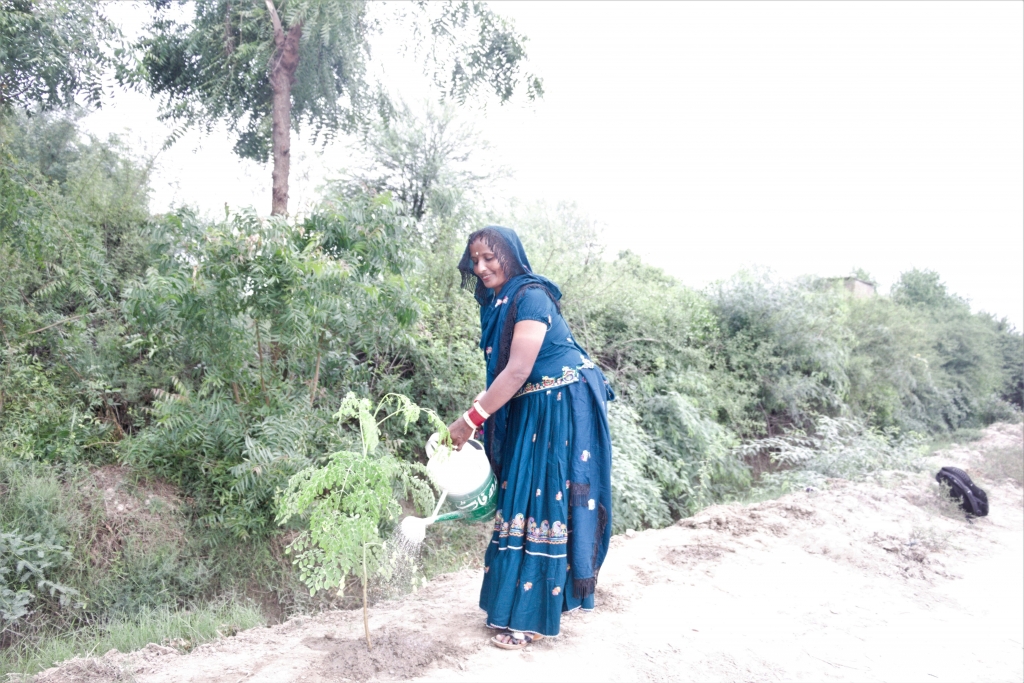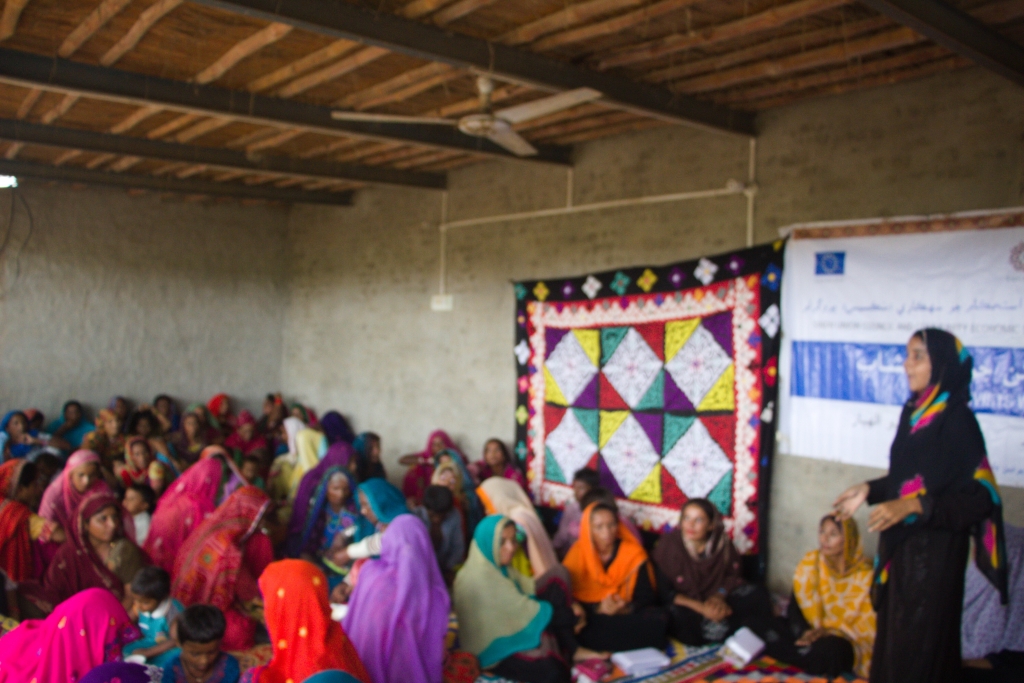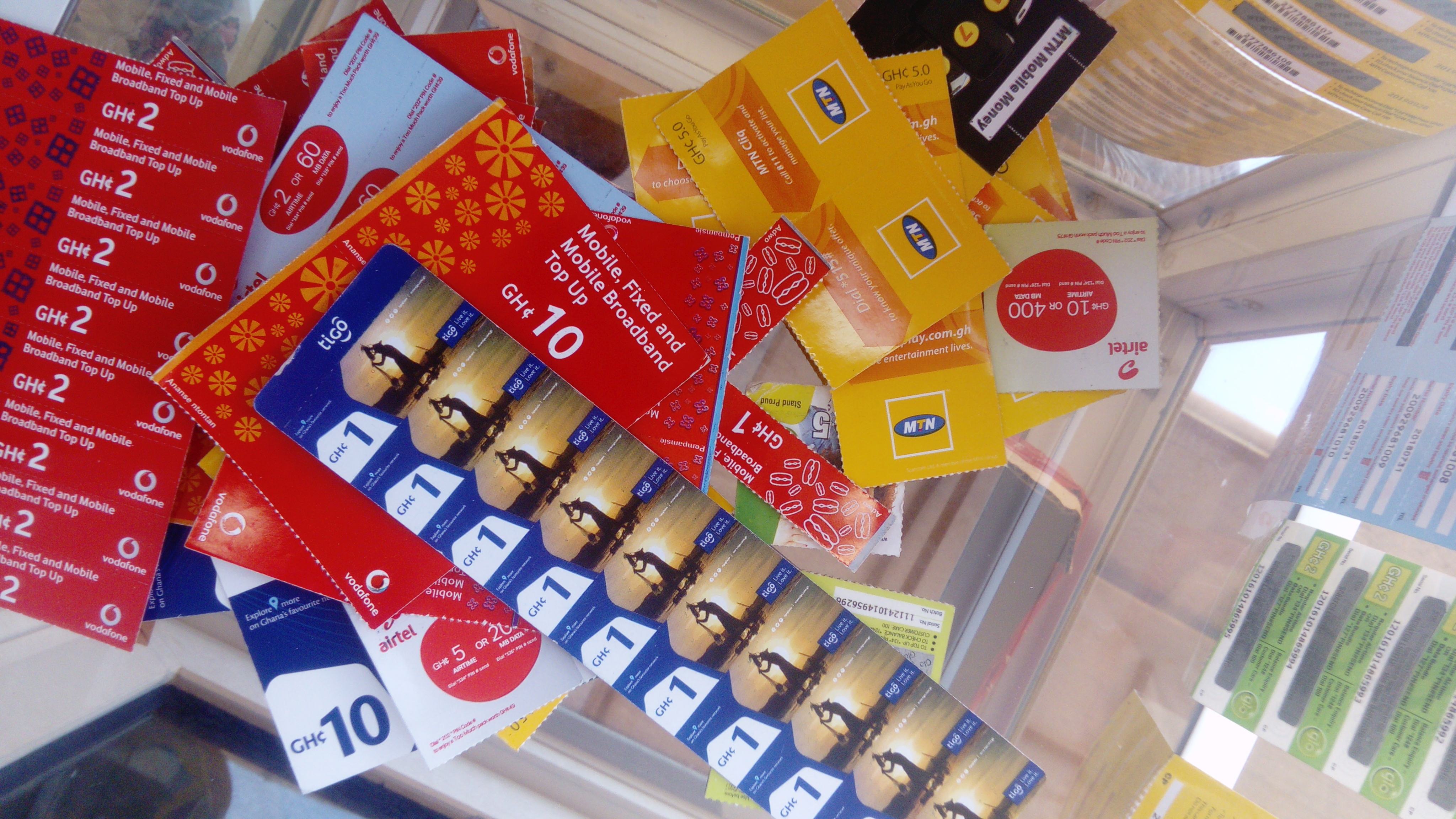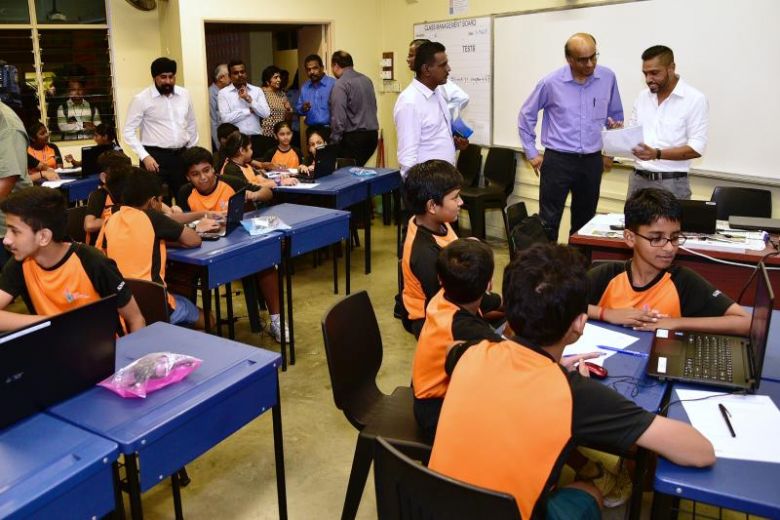Social Policy and Development Expert, Asmat Kakar, highlights three SUCCESS case studies from women in Rural Sindh.
Self-confidence is important for perceiving our innate potentials. It is critical not only for self-transformation but also for tackling community issues in an organized way. National Rural Support Programme (NRSP) under the Sindh Union Council and Community Economic Strengthening Support (SUCCESS) Programme works with millions of poor rural women in Sindh province of Pakistan. Provision of Adult Literacy and Numeracy Skills (ALANs), Leadership Management Skills Trainings (LMST), and Community Management Skills Trainings (CMSTs) are few of many opportunities which have helped many women to transform their lives by starting small scale income generating activities in rural villages, organizing communities into formal community organizations, establishing linkages with local government authorities for improving services delivery, and increasing awareness about girls in schools, family planning, health and hygiene, and climate change.
To highlight the impact of such skills for unlocking women’s self-confidence and enabling them to transform their lives, I interviewed few successful women with hope to inspire and nudge other poor women in rural Pakistan.
More than 50% population of Tando Allah Yar lived in chronic poverty in 2015. Comprehensive big push interventions aforementioned provided a sustainable transition to thousands of families like Ruqma’s, Seema’s and Kainat’s families. Here I summarize their long stories of struggle for success and how such interventions helped them to improve their standard of living.

Ruqma’s Actions for Environment Protection
Ms. Ruqma belongs to a minority Hindu community and she is the President of Nagna Village Organization in Union Council Began Jarwar, District Tando Allah Yar. She has done matriculation and used to work as laborer in the agricultural farms in her village.
“After my matriculation, I started working in the agricultural fields by earning just $0.70 a day which was very less to support my family. In 2016, NRSP organized us into a community driven organization of which I become President. I was very shy and had less or no confidence to interact with people, forget about organizing big community awareness events. I unlocked my innate potential by getting CMST and LMST trainings which gave me confidence to think and start community development activities in my village.”
I had the chance to participate in one of the activity organized by Ruqma and her community members with collaboration of District Forest Department. The activity was about raising community’s awareness about environment protection followed by tree plantation. It was worth appreciating to see such kind of climate actions by poor rural communities with aims to reduce the negative impacts of climate change depleting their resources and means of livelihood.
“Every day, with such activities, I’m getting better and better. I feel proud of myself for having a purpose in life.” Said Ruqma
Ruqma also works as Community Resource Person (CRP) and earns $31 per month. She got this position because of her activism for transforming her community members’ lives.

Seema’s courage to know and speak
Seema’s journey for change is another story of courage and self-belief in her own innate potential. Before SUCCESS Programme, she was unemployed and her movement was confined to four walls of her house because of tradition and lack of opportunities. She did not even know about her rights and duties.
“SUCCESS Programme has changed my life by giving me the courage to speak in front of people. It gave me the courage to know about my rights and duties. It gave me the courage to consider ourselves equal to men in our village. I got CMST and LMST trainings, and now I work as CRP. I have organized all women of my Union Council into community organization so that they can benefit from other interventions of the SUCCESS Programme including Community Investment Fund (CIF), Income Generating Grants (IGGs) and Micro Health Insurance (MHI).”
Kainat transforms her community
Kainat’s story is not different from Ruqma’s and Seema’s stories. Her father died early due to which she had to rely on herself for which SUCCESS Programme provided a stepping stone to harness her potential. She is now working as CRP. Every day, she organizes her community members, participates in their meetings, supports them in development of their respective Village Development Plans and Resource Mobilization Plans, provide them trainings and awareness sessions on civil rights, health, education, environment protection. ‘It was very difficult for me to think about such kind of personal transformation after the death of my father who was the backbone of my family.’
Asmat Kakar (@asmatkhan19) Social Policy and Development Expert and Graduate of the London School of Economics and Political Science.
The views expressed in this post are those of the author and in no way reflect those of the International Development LSE blog or the London School of Economics and Political Science.





